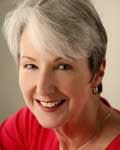In 1976 Trans Canada Airlines lost a small feeder turboprop and my girlfriend’s father was on it. Only he and the pilot were on board and their bodies vaporized. We went up to Ontario from Pasadena, Millie and I, to make sure her mother was all right, and that was the first time I saw the trail that became our family icon.
Her mother—Barbara was her name—was a woman as skinny as a new elm and as vulgar as an old hockey player. She told us she was fine, and she was surprisingly fine considering the co-pilot of her life had disappeared. She instructed us to go out and see the countryside and leave her alone so she could celebrate. Millie had heard that the Bruce Trail was something to see so we went to see it. We were avid hikers then, early in our courtship. I think it was only later that the trail became so well known, traversing a good part of the province along rolling hills that are the highest points in the state.
During the hike, up from a country road, into hills fully clothed with the shimmering greenery of that region, we first saw The Tree. We called it The Tree because it stood out that much. A massive old spruce, it had blown over in a storm and was caught in the arms of a better-braced beech of similar size. We made a bet, she con and I pro, that the next time we came up it would be down on the ground. On the way out Millie named all the flowers she knew from her childhood there.
“This is a wild daisy,” she said of the striking white ones. Taking one’s head off for me. “He loves me he loves me not, he loves me he loves me not.”
And so on until she had it plucked clean and the petals all lay as white as paint chips in her hand. Lo and behold, I loved her. Then she blew at the petals and all but three flew off her hand. “We’ll have three children,” she said definitively.
Then she picked a yellow buttercup the size of a quarter and held it up to my chin. “If it reflects off your chin, you love me.” She saw that reflection vividly, she claimed. Everything pointed to love.
We flew up again a year later, in part to caution Barbara to celebrate a little more slowly with the insurance money. We went out to the trail as she thought about this and remembered The Tree and walked the extra half-mile for a look. It was still hugged up against the beech, holding on with its stripped arms as if terrified of falling. Its bark was eroding to a slate gray in this liquid environment.
“This thing doesn’t want to go down,” I can remember saying. “Would you?” Millie asked. We went home and were married and had four children within seven years.
And so the visits went, over a period of three decades. Barbara was as tough as Niagara Escarpment limestone but when she declined she did so furiously. Into a long, lit matchstick of white hair and outdated blouses. Rigidly upright and lashing out about the American lust for Canadian lumber. She became more companionable toward the end. Once, she laughed with us rather than at us. Every visit was also a visit to The Tree. We took the kids, who like all good California children whined at the very sight of a trail disappearing into woods, even as they became teenagers and young adults.
“I don’t understand it,” Barbara said the last time we saw her. “That Vickers Viscount had the Rolls Royce Dart engine. That was the best engine ever made. It shouldn’t have failed. It just should not have failed.” We had never heard her grieve for her husband before, but this sometimes happens in the proximity of death.
When we got the news that she had descended the stairs in too much of a hurry and landed on her craggy limestone head we went up one more time. Buried her and sold the house and Millie left me for Bobby because she had quite a nest egg and determined that it was her best opportunity to start all over again. This happens to men like me who are too compliant, I hear. I always called him Bob when I saw them at Thanksgivings or weddings, but she called him Bobby and so did the kids eventually. After a few years I suggested that we go up and walk the old trails. Just she and I and the kids. Not Bobby.
Millie declined, of course, as anyone would. The kids were busy with their own families by this time and on a whim of international proportions I decided to fly up by myself. I drove by the old brick house where Barbara had ruled our meager dinners with an iron fist but that wasn’t why I went.
I drove to the trail head, which was now an asphalt parking lot lined with grass play areas and picnic tables, on a fine June morning and parked and hiked up the trail and found The Tree within twenty minutes. Like a reluctant cadaver it still clung to the beech, which had grown on without its old mate. The fungusy beast just would not go to ground, though it scarcely had arms to hold on with. I had lost my bet and this was the last time I would go back.
As I left I picked one of the new buttercups from along the trail, yellow as eggs and sugar mixed in a bowl, and before I could think what I was doing I held it to my chin and said “Is it there?” but of course this was stupid. There was nobody to observe whether my reflection was present or not.
© Copyright 2009 Donnie Dale. All rights reserved
 Donnie Dale’s published novel is A Hunter’s Fire. A horror film he co-wrote was produced but never released. He has had several other screenplays optioned and was a writer on the true crime show Arrest & Trial. He makes his living as a freelance magazine writer. He used all but six of the thousand words allotted to him in writing Air Lines. The words he left out are crucible, maniac, fizzled, draconian and two buts.
Donnie Dale’s published novel is A Hunter’s Fire. A horror film he co-wrote was produced but never released. He has had several other screenplays optioned and was a writer on the true crime show Arrest & Trial. He makes his living as a freelance magazine writer. He used all but six of the thousand words allotted to him in writing Air Lines. The words he left out are crucible, maniac, fizzled, draconian and two buts.



 Petrea Burchard
Petrea Burchard




